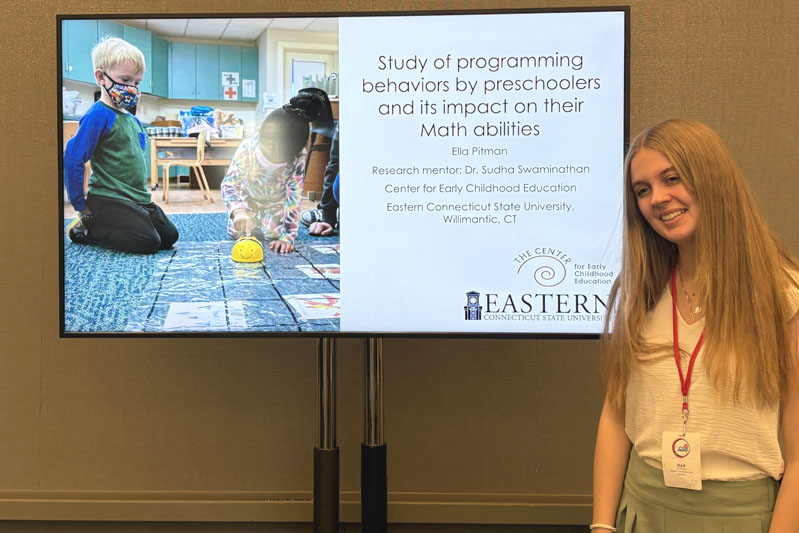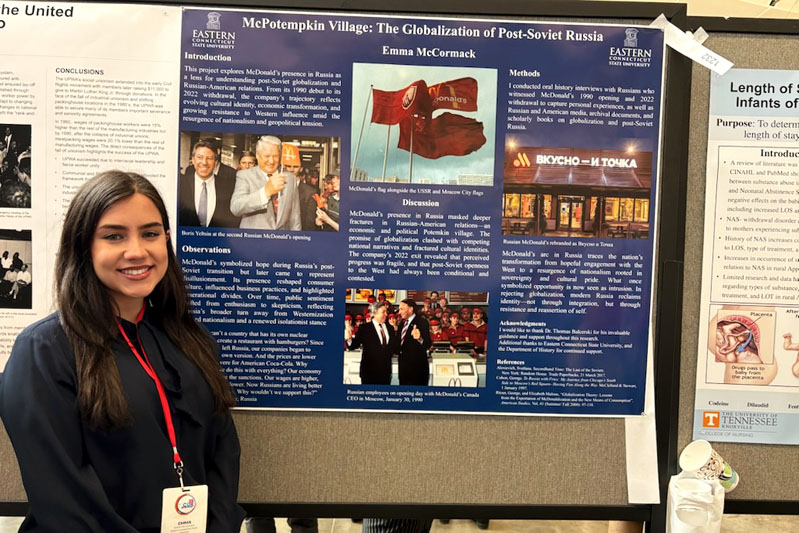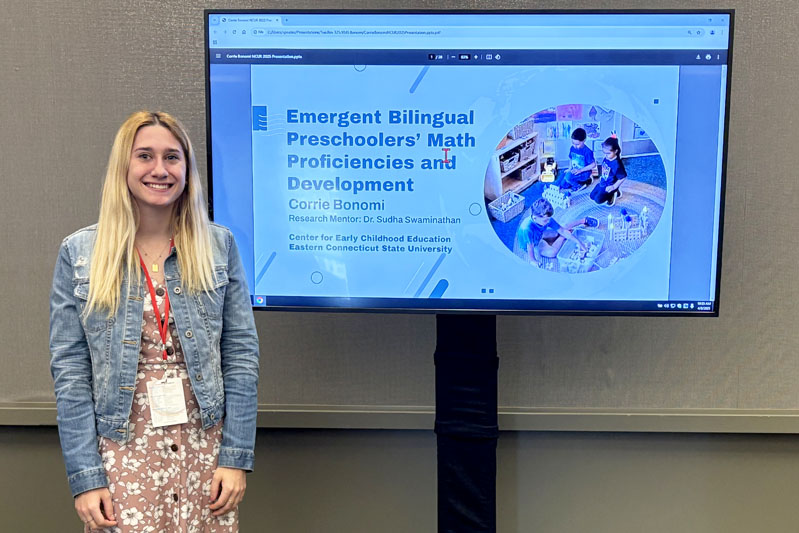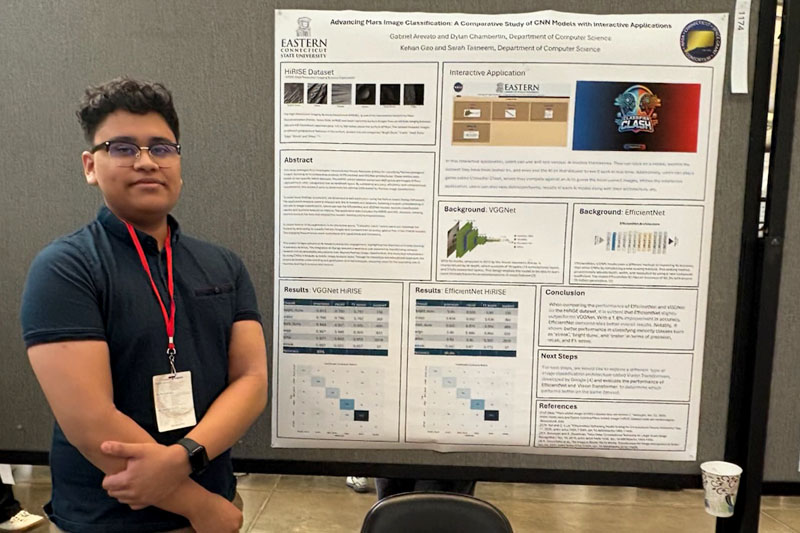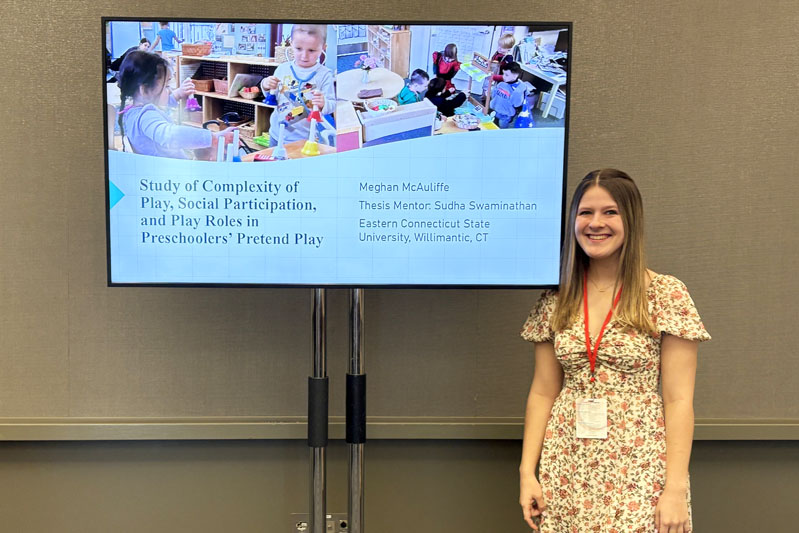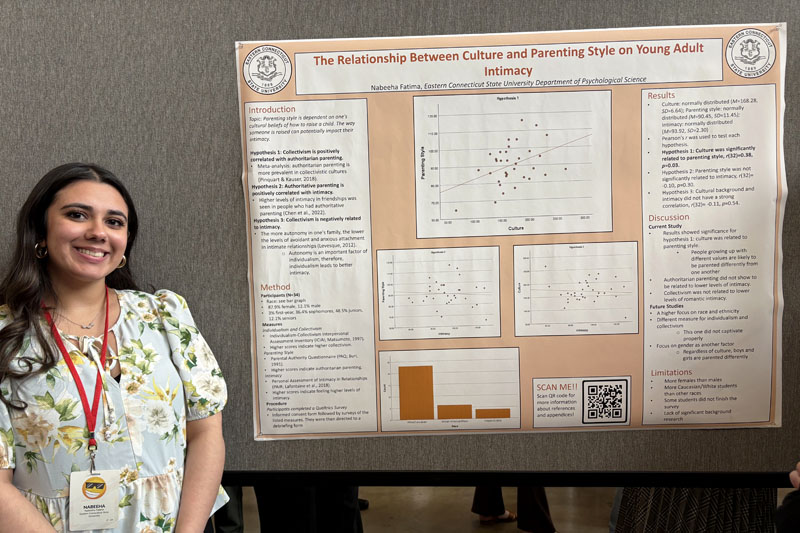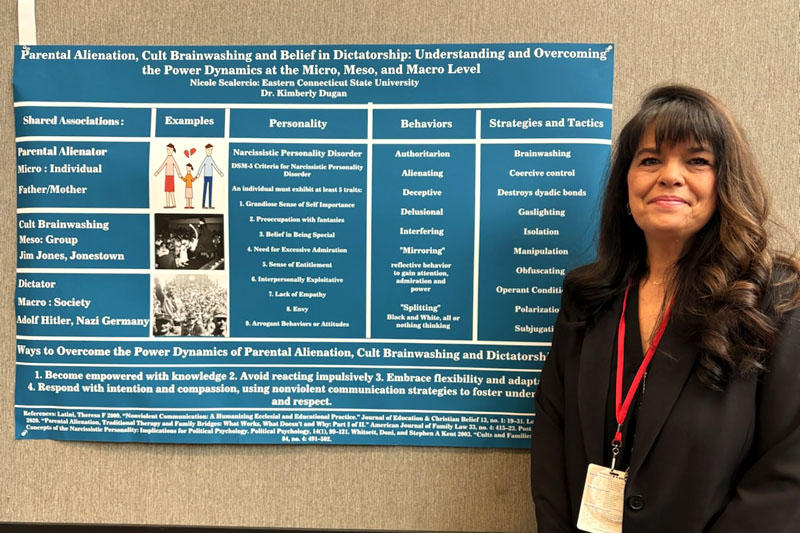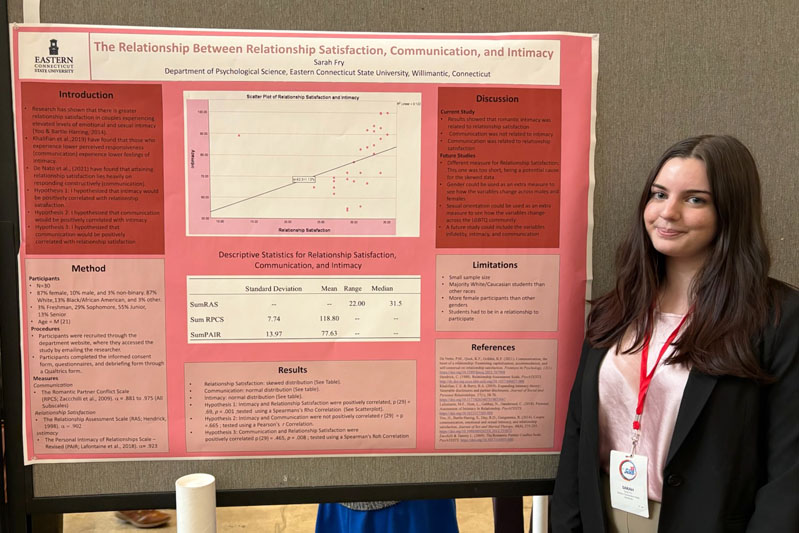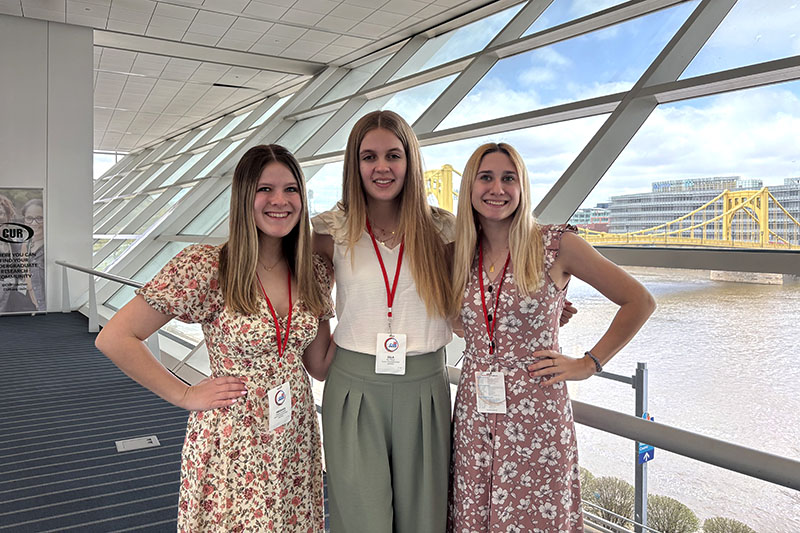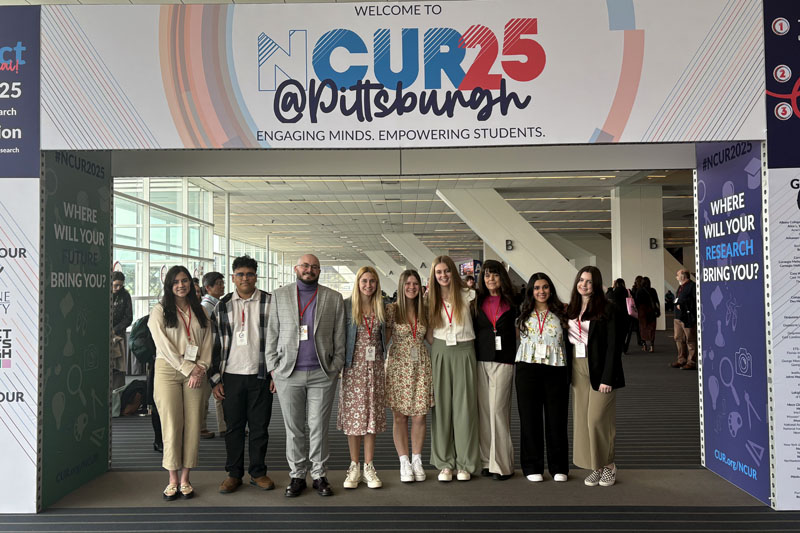- Apply
- Visit
- Request Info
- Give
Students delve 'beyond the research' at NCUR
Nine present at National Conference on Undergraduate Research
Written by Kyle Berson '26
Published on April 22, 2025
From artificial intelligence (AI) on Mars to the impacts of cult brainwashing on parenting, nine Eastern students showcased their work at the 2025 National Conference on Undergraduate Research (NCUR), held April 7-9 at the David L. Lawrence Convention Center in Pittsburgh, PA.
NCUR is an annual conference with the mission of promoting undergraduate research from nationwide institutions and diverse fields of study. The conference featured mentor-led sessions, student poster and oral presentations, and a “Future Fair” showcasing undergraduate research.
The conference “offers a forum for premier undergraduate students to demonstrate their exceptional scholarship,” said Sudha Swaminathan, professor of early childhood education and faculty supervisor for the trip. She noted that Eastern students showcased their work alongside prestigious institutions such as Princeton University.
“In this midst, our Eastern students confidently presented their impressive work, showcasing our liberal arts focus and devotion to research,” said Swaminathan.
Swaminathan shared her pride in the student presenters, especially in her students in the early childhood education program. They “demonstrated that they could go beyond the research and answer questions stretching the research findings to future research, classroom implications, and the state of early education.”
Student perspectives
“Presenting at a national conference of this scale was an incredible experience,” said Nabeeha Fatima, a senior studying psychology. “It was inspiring to be surrounded by passionate, curious individuals from so many different academic disciplines.”
Fatima explored the relationship between culture, parenting styles, and emotional intimacy in young adult relationships. Her research revealed a significant correlation between one’s culture and their parenting style, citing that those from more collectivist cultures tend to have more authoritarian parenting styles.
Although many students had significant findings, many students also received constructive feedback. Fatima recalled a particular criticism shared by many of the student presenters. Smaller institutions such as Eastern tend to have smaller sample sizes, which has the possibility of skewing results.
“It was validating to hear that my research ideas were strong, and that expanding the diversity of my [participants] in graduate school could lead to even more meaningful results,” said Fatima.
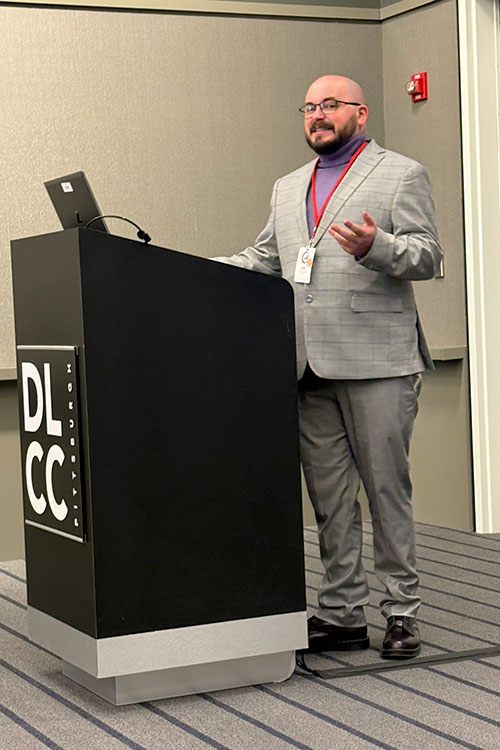
Whereas much of the research at NCUR was STEM-focused, Eastern’s liberal arts background brought unique perspectives to the stage. Swaminathan recalled senior English and Asian studies major Colin Morrison’s short story, the only original piece of writing presented at the conference.
“Morrison's gripping narration of his short story held his audience in rapt attention to the last second,” she said.
Senior computer science major Gabriel Arevalo created two AI models trained to classify Martian landscapes based on NASA imagery. While showcasing his findings, Arevalo also had his audience “compete” against the AI models to demonstrate their efficacy in identifying landscapes.
Meghan McAuliffe, a senior studying early childhood education, special education, and sociology, explained the importance of Eastern’s resources to undergraduate research. McAuliffe studied the complexity of play, social participation, and play roles in preschoolers.
“I completed this study at the Child and Family Development Resource Center on Eastern's campus, using the Center for Early Childhood Education’s remote video technology,” said McAuliffe.
During the fall, senior sociology and psychology major Nicole Scalercio found a strong association between parental alienation and cult brainwashing. When she made the realization that dictatorships tend to have similar characteristics, Scalercio continued her research and found a strong association between the three dynamics.
“In sociology, we look at the individual, group, and society,” she said. “It was interesting to find this unique connection.”
Apart from presenting their own findings, students had the opportunity to explore other institutions’ research. “I had a lot of interactions with students from other majors that were presenting their work,” said Arevalo. “I enjoyed talking to each student about their research and trying to understand what their research was about, especially if they were from another major.”
Scalercio shared this sentiment. “It was wonderful to meet so many people from all over the country and share our different research as well as learn from one another,” she said. “Attending NCUR was a highlight of my time attending Eastern.”



